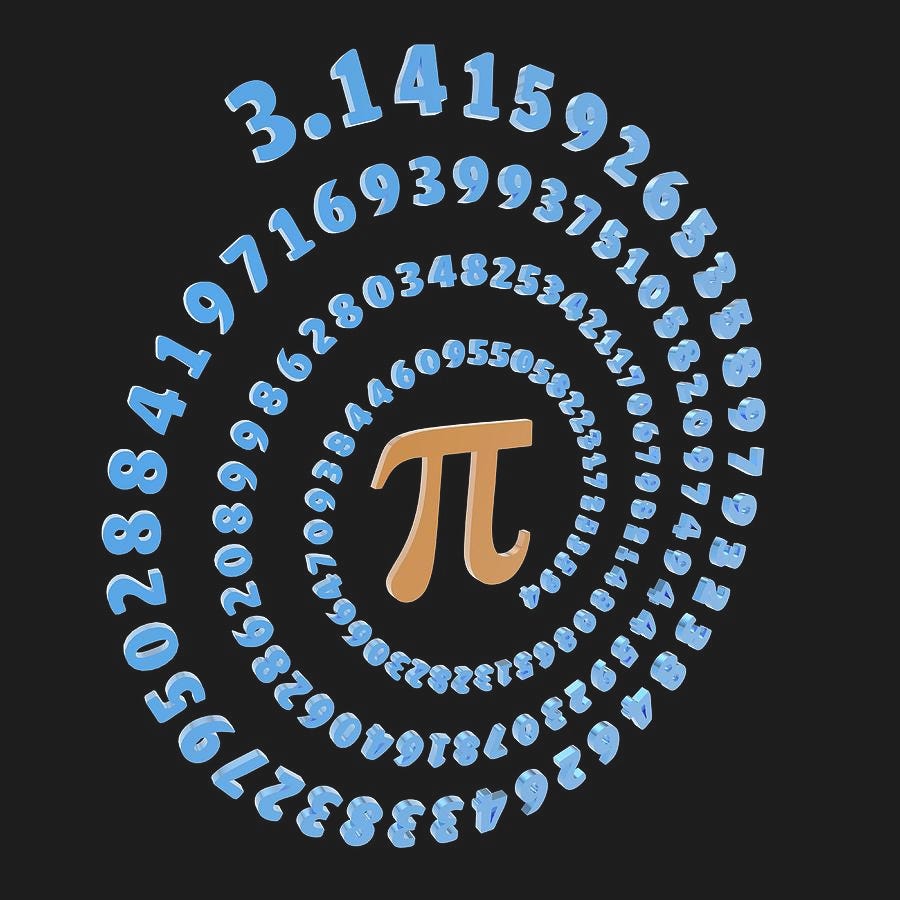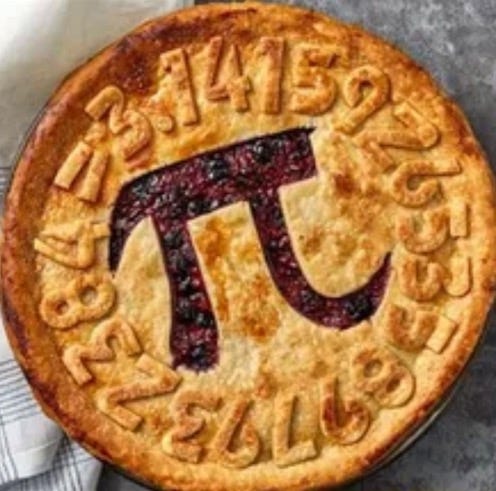Seven - Homeschooling Series: Every Moment - Celebrate Pi Day
Every moment can be a learning moment and only you can determine if you are going absorb or react to a situation.

Insanity: doing the same thing over and over again and expecting different results. Albert Einstein
Over the years, I have had questions where people want to know what their student should know at a certain time. I found with my student we were never on the “schedule” that was traditionally outlined by the professional educators.
If you are new to homeschooling, you might feel the need and definitely the curiosity about what your student “ought” to be learning and when.
There are standards of course, set at a state level. It’s why/how the state schools teach the same thing to every student at the same time.
Do an internet search on “Academic Content Standards” + [Your state name] and you’ll find them.
An even better idea instead of state academic standards is to go to some of the better private schools in your area and get their curriculum outline. If it’s not online, let them think you are considering enrolling your student and the information will flow - that is if they have established curriculum.
“Contracts” for private schools are generally signed in February so the best time to inquire about curriculum at the private schools is in the December/January time frame.
All of these tips are great for finding out what the schools think are important. The thing is, even though you may find out what other kids your students age are learning, that really doesn’t matter if it is not what your student is interested in.
I get many questions about how I homeschooled my student. Especially once one finds out he’s an Aerospace engineer working in his field since graduation.
My student was what experts call “highly gifted”, which presented its own unique degrees of difficulty with homeschooling. There’s always an aura of mystery portrayed when the subject of giftedness comes up, and that was as much of a stumbling block as it was a “gift”.
I pulled my kid out of school then because I felt the school system would do harm to who he was. I imagine the idea that the school system will do harm is present in decisions being made about homeschooling in the current education environment.
The nuts and bolts of what you need to do to homeschool, no matter what your situation is, will be similar to what I had to do, and it is all common sense stuff.
Homeschooling is not just curriculum. It is a myriad of decisions about a lifestyle you’re choosing for your family.
This is the seventh edition in my homeschooling series. This describes one of the unique study situations we enjoyed as homeschoolers.
This series, which is periodically presented on Thursdays, will deliver common sense ideas for those who want to homeschool or who are already homeschooling and need some new ideas.
My student hated to write, and hated is the right word.
A lot of it had to do with small motor issues, perfectionism and often, the story he had in his head was too elaborate to put into words.
But eventually I impressed upon my student that one needs to communicate in writing.
All the “writing standards and grammar” outlined for 5th, 6th, 7th graders that he blew off, suddenly became important when it was time to take the PSAT (Preliminary SAT/National Merit Scholarship Qualifying Test) series of tests beginning in 8th grade which shows whether your student is on track for college. It also shows which Advanced Placement Program ® (AP) courses your student is ready for.
As it turned out, for all those years I had been asking him if I had “dictionary” stamped on my forehead - my student was an excellent writer.
It just happened on his schedule, not mine.
The point is that no matter what you plan, or what you read that the local college prep private school is doing, your student is always going to have a different idea about things.
It’s just best to get used to working with him – there are less surprises this way. As long as you both understand long-term goals on the horizon, it all gets done.
Really.

Every Moment is a Learning Moment
Every moment can be a learning moment and only you can determine if you are going absorb or react to a situation.
The thing about homeschooling is that it is a lifestyle and once you realize that every minute of every day can be an experience or a waste of time, you and your student are on the path to a lifetime of learning.
You can make the best of what happens every day or you can fret over the idea that what kids in schools are learning are not what your kid is learning, or even wants to for that matter.
As a homeschooler, you can develop some pretty interesting study situations.
Like for example, Pi Day.
It used to be fun to celebrate March 14 as “Pi Day” (3.14).
Founded in 1988 by physicist Larry Shaw, March 14 was selected because the numerical date (3.14) represents the first three digits of Pi.
The first Pi Day celebration was held at the San Francisco Exploratorium which was Larry Shaw’s place of employment. It featured a circular parade and the eating of fruit pies. They described it then it as an international “geek” holiday.
Years ago, when Pi day was a fun “academic homeschooler thing” to do we celebrated by spending the whole day on all things “Pi” including baking “Pizza Pi” and enjoying “Mississippi Mud “Pi”” for dessert.
March 14 also happens to be Albert Einstein's birthday, one of my student’s favorite people, so we would throw in studies about Einstein too.
It wasn’t until 2009, however, that it became an official national holiday when the U.S. House of Representatives passed legislation.
It now has become commercialized and hijacked by our public school counterparts, but all good things are aren’t they?
In 2015, Pi Day fanatics had a special treat. Celebrations took place on 3/14/15 at 9:26:53 a.m., the numerical date and time together represent the first 10 digits of Pi, 3.141592653.
Massachusetts Institute of Technology (MIT) posts its application decision letters to prospective students for delivery on Pi Day (for Regular Action).
However there is a growing movement argues that killing pi would make mathematics simpler, easier and even more beautiful.
It has gotten so much traction now, MIT has modified its practice of letting applicants know admissions decisions on Pi Day by further specifying that it will happen at Tau (τ=C/r= 6.283185…) time - that is, at 6:28 P.M.
Sad. But true.
If you look online for “Pi Day” you’ll find a lot of resources.
To date, Pi has been calculated to more than 1 trillion decimal places.
The number is Pi, 3.1415926535...ad infinitum. It is an irrational number (the digits after the decimal point are never-ending) and its decimal representation never ends or repeats.
The significance of Pi is the number you get when you divide the circumference of a circle by its diameter that cannot be expressed as a fraction.
It continues forever.
By definition, Pi is the ratio of the circumference of a circle to its diameter.
Pi is always the same number, no matter which circle you use to compute it.
Your student will love the study of Pi Day, it can be studied many different ways. Here are some resources we used that are available today:
More Resources
Joy of Pi by David Blatner.
π
The official website for pi day: San Francisco Exploratorium





Love this, and congrats on your son's success as an aerospace engineer. He's so lucky to have been raised by such a dedicated parent!